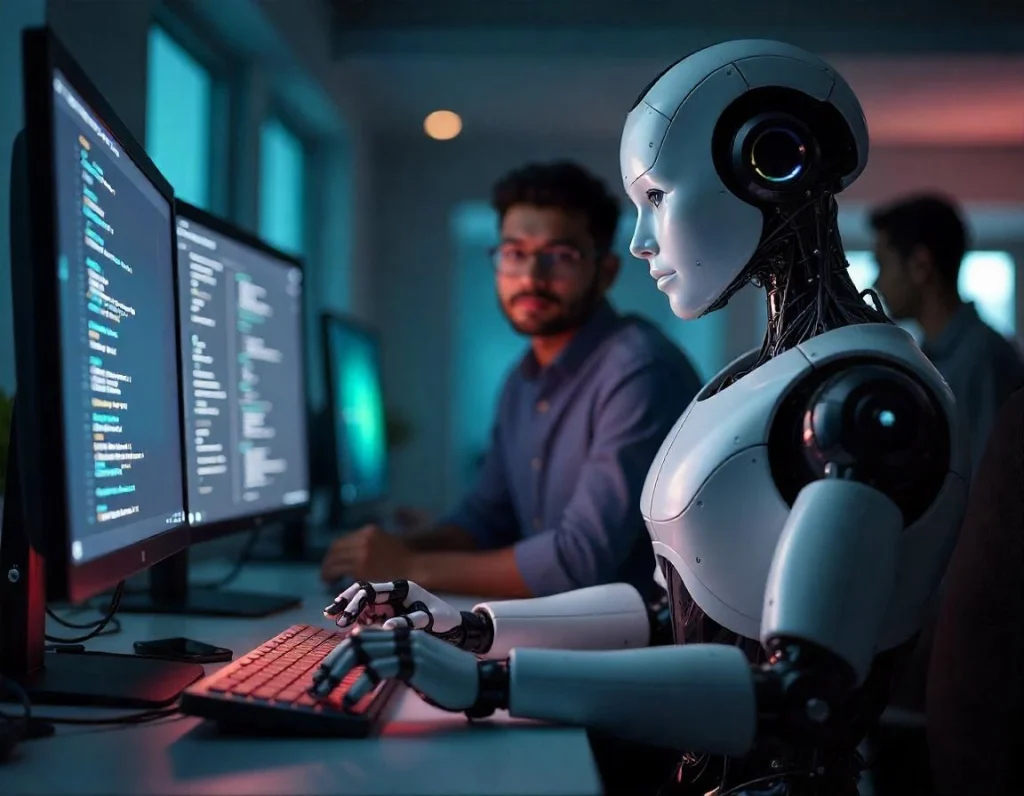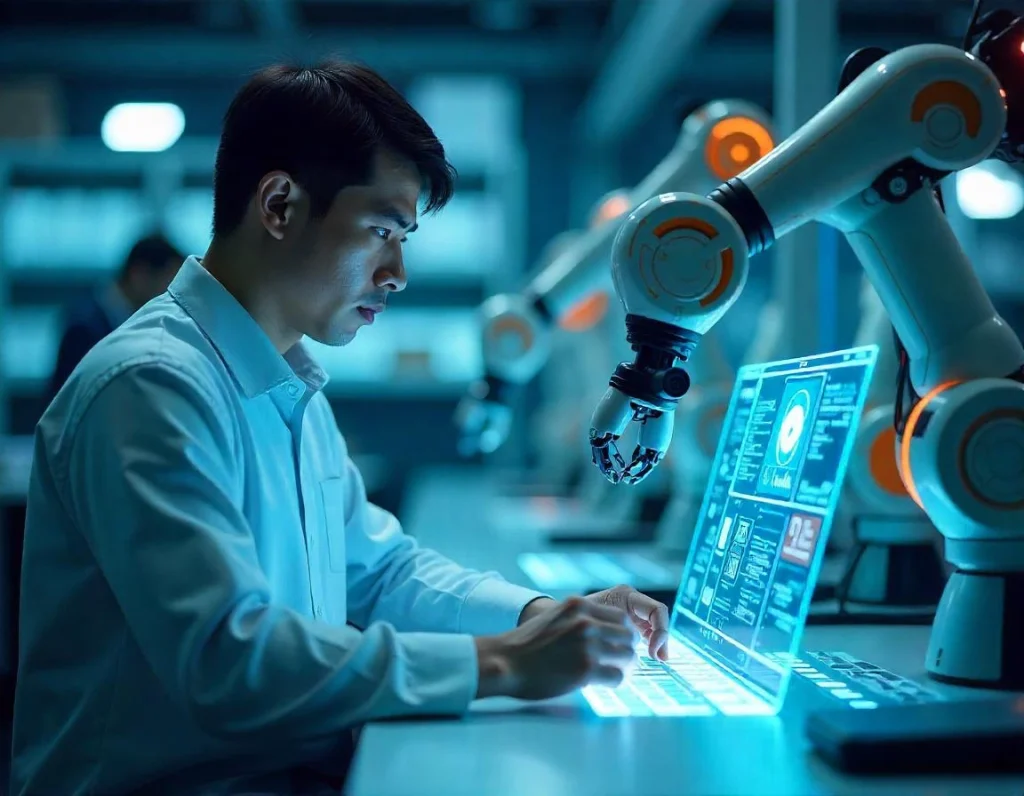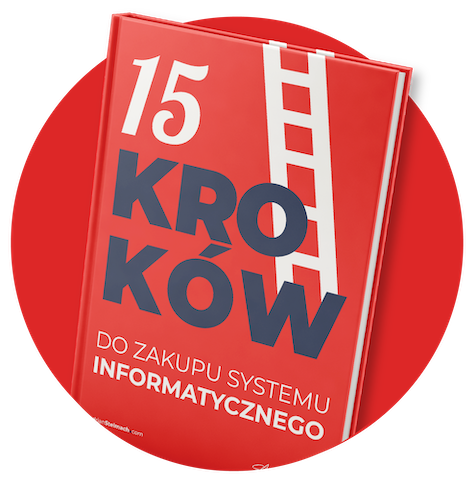
NEWSLETTER
Wpisz swój adres e-mail i zyskaj e-booka
Bez niechcianej poczty ani reklam
Tylko merytoryczne treści z obszaru digitalizacji produkcji

Artificial intelligence and the job market – a topic that definitely raises a lot of emotions. Will automation eliminate technical professions or, on the contrary, create new opportunities? In this article, I’d like to take a look at how AI is affecting engineers, programmers and IT professionals, and what competencies are crucial to successfully adapt to the new technological realities.

According to a report byMcKinsey , by 2030 14% of jobs could be automated. Does this mean that so many workers will lose their jobs? Not necessarily. History shows that every technological revolution – from mechanization of production to robotization – has not only taken away old jobs, but above all created new occupations and new competencies.
It is no different today. The impact of artificial intelligence on the professional market is not only a question of job losses, but also the development of whole new industries that would not exist without AI. So new jobs are constantly being created. Examples?
Just as machine operator positions were once created, roles related to the implementation and management of artificial intelligence are now naturally evolving.

In today’s engineering world, it is no longer enough to be able to code and know programming languages. Among the competencies of the worker of the future, the key ones are those that allow to combine the worlds of IT and business. So what will matter most?
AI is not taking away our jobs, it is transforming them. Unfortunately, people who don’t keep up with the changes quickly lose their competitive edge. There is no denying that the IT industry is currently undergoing a huge transformation. Positions such as the manual software tester have already been almost completely automated. Coding from scratch? A number of catch-code/no-code tools are greatly speeding up the entire process. The key to staying relevant, then, is the ability to use technology, especially for a profession that is vulnerable to automation. How to prepare?
Artificial intelligence and the job market is a topic that is not going away – and will not go away. AI is changing the way we work, but it does not mean the end of technical professions. On the contrary – it creates new opportunities for those who can combine technology with business, understand the context and adapt to new realities. And you, are you ready for these changes yet?
In it, I touch more extensively on the future of work in engineering professions. Subscribe to the channel to stay up to date on the topics of modern technology, digitalization and Industry 4.0!

Get 5 chapters of the book for free!
Join the newsletter and gain access to 40% of the book
“15 Steps to Buying an Information System“.